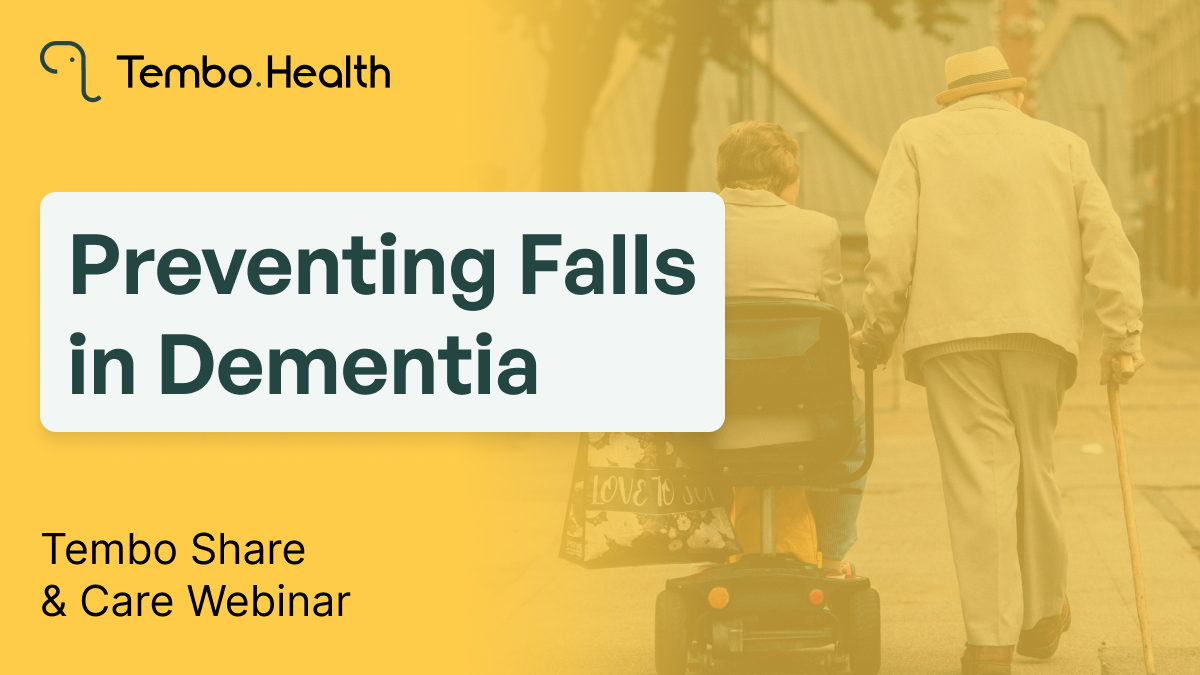Falls at Home and in Memory Care
Preventing Falls in Dementia: Practical Tips for Safer Care
Falls are a leading cause of injury for people living with dementia, whether they’re at home or in memory care. In our recent Tempo Health “Share and Care” webinar, Care Navigators Amy House and Mary Ellen Roina shared practical insights to help caregivers reduce fall risks and respond effectively when falls happen.
Why Do Falls Happen?
Dementia affects the brain’s ability to coordinate movement and process sensory information. As the disease progresses, common issues include:
- Shuffling gait and muscle weakness
- Loss of depth perception due to “monocular vision”
- Poor balance from postural instability or medication side effects
- Cognitive lapses, such as forgetting to ask for help when walking
Even something as simple as getting up to get a glass of water can become dangerous when basic needs aren’t communicated clearly.
What Can You Do?
Prevention is key. Here are proven strategies:
- Encourage hydration with small glasses of water, juicy fruits like watermelon, and decaf drinks
- Use fall-prevention tools like walkers, rollators, non-slip socks, and floor mats
- Check footwear—opt for lightweight shoes like Skechers slip-ins
- Review medications with a doctor, especially diuretics or blood pressure meds
- Optimize the environment: remove rugs, improve lighting, and use grab bars in the bathroom
- Establish routines for meals, bathroom breaks, and nighttime assistance
Creative tools like social stories, music, or even glow-in-the-dark floor tape can help reinforce safe habits in a dementia-friendly way.
What If a Fall Happens?
Be a detective. Look for the cause—was it a bathroom trip, tangled bedding, or an unmet need? Call for a nurse evaluation and, if needed, use services like Tempo Health’s 24/7 urgent care to avoid a stressful ER visit.
Falls are sometimes unavoidable—but with proactive planning, many can be prevented. If you’re caring for someone with dementia, reach out to Tempo’s care navigators for guidance, support, and fresh ideas.
.svg)

.webp)
